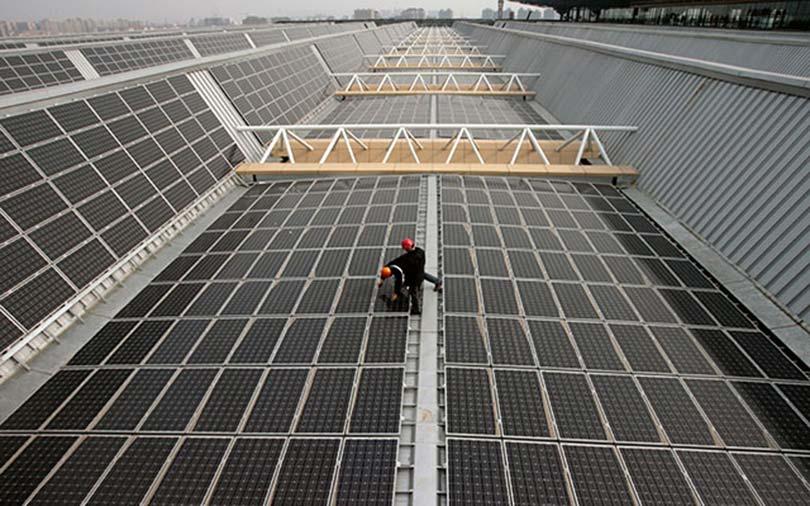Private equity giant KKR said on Monday it has agreed to acquire five solar energy assets from Shapoorji Pallonji Infrastructure Capital (SP Infra) for $204 million (Rs 1,554 crore).
The portfolio consists of assets with a capacity of 169 megawatt peak (MWp) in Maharashtra and 148 MWp in Tamil Nadu, KKR said in a statement. The investment was made through its infrastructure fund.
The deal will help it bring capital and expertise to meet the demand for infrastructure development in the sustainable energy segment, it added.
EY acted as the mergers and acquisitions advisor to KKR, while AZB & Partners and Simpson Thacher & Bartlett acted as the legal advisors to the PE firm on the deal. Edelweiss, Khaitan & Co. and PricewaterhouseCoopers acted as the M&A, legal and tax advisors to SP Infra.
“Given the government’s ambitious target of achieving 175GW of renewable energy capacity by 2022, we believe this is an attractive time to invest in this portfolio and provide even greater solar energy solutions to communities across India,” Sanjay Nayar, CEO at KKR India, said.
The PE firm in November last year had reportedly hit the halfway mark for its $3 billion for its Asia-focussed infrastructure fund. It made its first investment in the sector through a $400 million deal to take control of India Grid Trust (IndiGrid).
Separately, SP Infra managing director Mukundan Srinivasan said the acquisition of the company’s assets by KKR was proof of the company’s ability to develop high-quality infrastructure assets.
SP Infra is the infrastructure development arm of Mumbai-based Shapoorji Pallonji Group. The company has assets and business ventures in the renewable and gas-based power spaces and highways, ports and terminals in India and abroad.
The acquisition of its five solar energy assets comes a little over a year after part of its operating portfolio was acquired by Sprng Energy, a renewable energy platform set up in India by British private equity firm Actis. The deal involved the sale of 194 megawatts of operating capacity for an undisclosed sum.
At the time, Srinivasan said the sale was part of the company’s strategy to divest a part of its operating portfolio to redeploy capital for the development of new solar projects.







